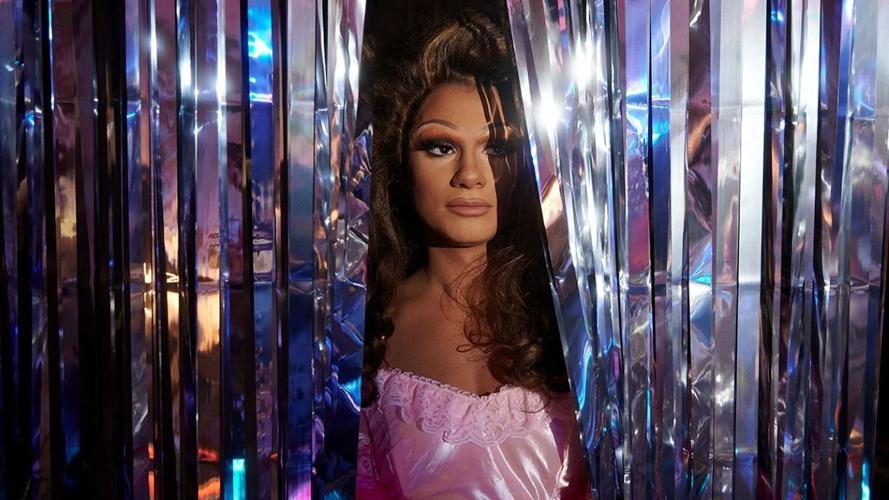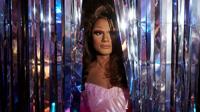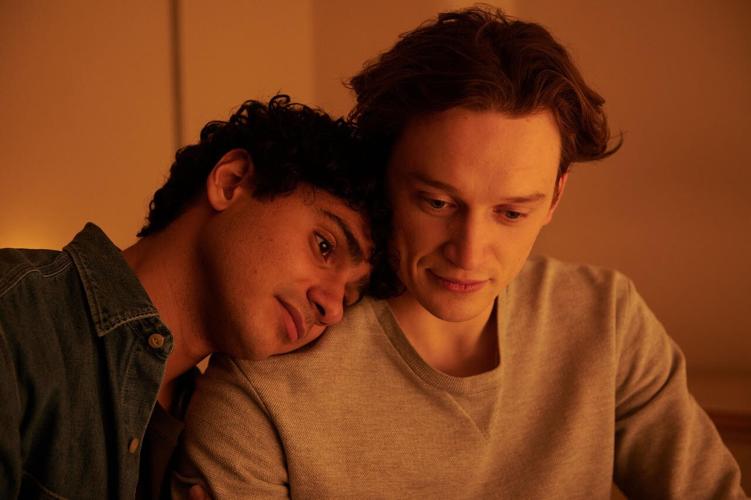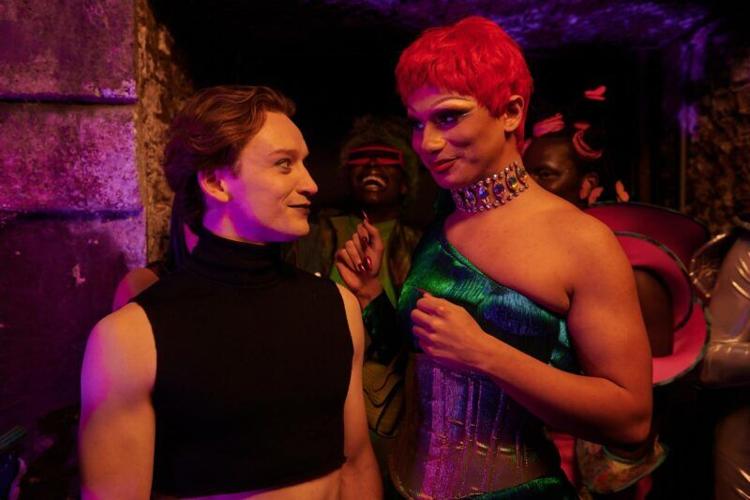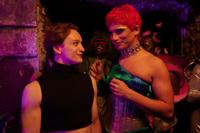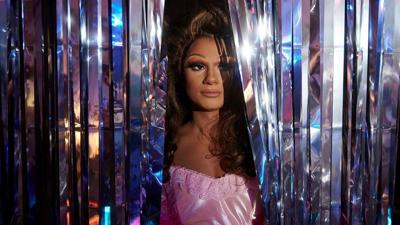Amrou Al-Kadhi is a queer nonbinary, British artist who comes from an Iraqi family. They are an author. Their debut was Unicorn: The Memoir of a Muslim Drag Queen (2019), which won several awards. This film is Al-Kadhi's debut feature and like their book has autobiographical elements. In general, it's about a drag queen who is a BIPOC person having a relationship with a masculine and possibly insecure, white guy. It premiered at the 2024 Sundance Film Festival. It followed another British, BIPOC drag queen and white guy romance called Unicorns (2025) by James Krishna Floyd and Sally El Hosaini, which premiered at the 2023 Toronto International Film Festival. Gravitas Ventures managed to release this film in the United States in March 2025 before Cohen Media distributed Unicorns in the USA in July 2025. Both films follow another British, BIPOC drag queen and white guy romance, that of Femme (2024), which premiered at the 2023 Berlin International Film Festival.
Those three stories are different, but there are similarities and themes in common that they all share. Yes, there's bigotry coming from outside the LGBTQ community, but there's also bigotry coming from within it. Often, the antagonist isn't a straight person, or the conflict isn't coming from a straight person. The conflict comes from another LGBTQ person. It's not antagonism in expected ways. A lot of it is internalized and people being antagonistic to themselves without anyone's intervention. The enemy literally is within. There's a moment when the main character here realizes that the problem isn't coming from someone else or outside. It's coming from inside them. Of course, there's a larger question of where did that internal conflict originate or what caused it to spring, but the point is that the problem can't be solved by fighting another person.

Bilal Hasna (The Agency and Extraordinary) stars as Latif, a British drag performer who's nonbinary. Their drag persona is "Layla," and they prefer to go by the name Layla, even when not in drag. They come from an Arab and Muslim family. They're Palestinian, but Layla doesn't tell their queer friends about how when they go to visit their Palestinian family, they pretend to be straight and masculine. In other words, they pretend to be "Latif." As in Femme, it's pointed out that Layla isn't the drag performance, but actually Latif is the drag performance
Yes, this isn't any different from being in the closet on a practical level. In the closet, a person is hiding who they are in order to survive or protect themselves. This was essentially the case in Femme. Usually, what is being hidden is the fact that the person is gay or queer, and they're hiding it from a straight person. In this case, the person's gayness or queerness is known to the other person in question. What's being hidden is something else. What's being hidden is ostensibly femininity, but it's more than that. It's a colorful, artistic or messy side to humanity that needs to be hidden here or scrubbed clean.

Louis Greatorex (Masters of the Air and Last Tango in Halifax) co-stars as Max, a marketing executive that works in London. One of his clients is a company called Fork Me!, a ready-meal manufacturer that decides to promote itself by hiring drag queens. One of those drag performers is Layla, but Layla realizes that the event is very scrubbed clean, very sanitized, and very corporate. This also seems to describe Max who is very corporate. He likes Layla because Layla isn't corporate and is in fact messy as Hell. Max likes Layla because Layla sparks a more fun and artistic side in Max because while Max is gay, he doesn't really visit or inhabit gay spaces, which those spaces might be too messy for his ingrained corporate persona.
A good chunk of this film could be cross-cultural issues or mixed-race issues. When two people from different races and different cultures come together, there can be clashes. The sticking point is how these two people behave or relate when around their family or friends, as opposed to when those people are only in each other's company. When the two try to blend their worlds, it causes them to regress and not bloom. They have to pretend in order to fit into the other person's social group or their friends and relatives. Max doesn't necessarily fit in Layla's non-corporate spaces and Layla can't fit in Max's corporate ones.

The film though has a great metaphor for being queer and nonbinary. At one point, Max asks Layla about why they use "they/them" pronouns. Layla compares it to being like an octopus, which is Max's favorite animal. They compare it mainly due to octopus's abilities to shapeshift and alter their bodies externally, literally changing colors or forms. It was a great piece of writing here.
Not Rated but for mature audiences.
Running Time: 1 hr. and 40 mins.
Available on Hulu.

